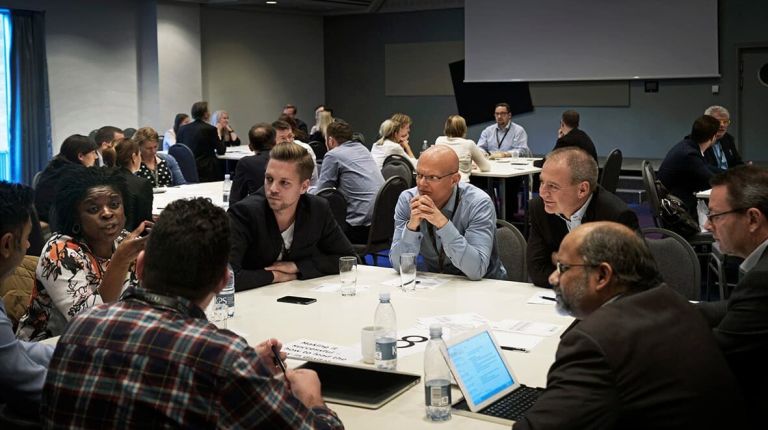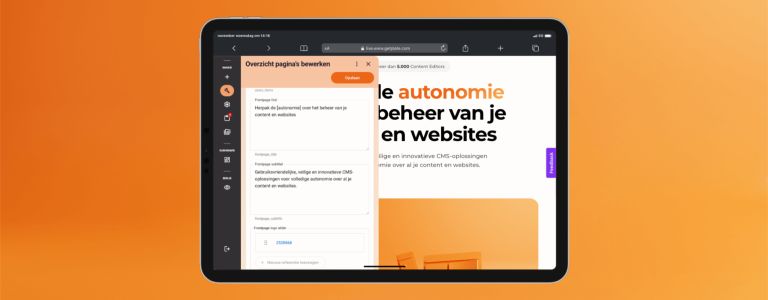

What can we learn from the chaos at WordPress?
From various sources, we have been receiving reports over the past few weeks about the chaos that has arisen within the WordPress ecosystem. If Plate had been an American company, we probably would have immediately seized this chaos to further tarnish WordPress’s name in order to make Plate look better. However, our Calvinist nature has caused us to reluctantly put our thoughts on paper, a month after the keynote from WP-founder Matt Mullenweg.
We’re not here to tear down WordPress or open source, but rather to show how decision-making works within Plate and how we strive to ensure that users are never victims of turmoil and ego.
What’s going on with WordPress?
WordPress is the largest and most widely used CMS in the world. It’s an open-source project and, therefore, extremely popular with developers due to the high degree of freedom and flexibility. And it’s precisely these developers who are the victims of the chaos. About a month ago, WordPress founder Matt Mullenweg expressed in not-so-kind words that one of the biggest service providers on WordPress, WP Engine, does not give back enough to the open-source community and mainly profits from the WordPress ecosystem.
There’s nothing wrong with a disagreement—we’re all human—but where things are going wrong now is in the back-and-forth retaliations.
Lawsuit from WP Engine against Matt Mullenweg and Automattic
WP Engine filed a federal lawsuit against Mullenweg and Automattic (the company behind WordPress), accusing them of extortion, defamation, and unfair competition. They claim that Mullenweg abused his power to harm WP Engine.
Automattic blocks WP Engine on WordPress.org
WordPress.org temporarily blocked WP Engine’s access to essential resources such as plugins and themes, which enraged WP Engine’s customers. This block was briefly lifted but led to legal actions.
Acquisition of the ACF plugin by Automattic
Matt Mullenweg decided to fork the popular Advanced Custom Fields (ACF) plugin and took it over from WP Engine, which owned the plugin. Mullenweg justified this as a security measure, but WP Engine viewed it as an unlawful seizure.
Both parties have sent each other ‘cease-and-desist’ letters. WP Engine demanded that Mullenweg retract his accusations, while Automattic accused WP Engine of violating WooCommerce and WordPress trademarks.
Is Plate a ‘safe haven’ as a WordPress alternative?
Since the unrest at WordPress, we have seen significantly more traffic on our website on search terms like ‘WordPress alternative’ or ‘WP Multisite Alternative’. But is Plate really a good alternative to WordPress? Yes and no.
Compared to WordPress (open source), Plate’s Multisite CMS is a SaaS platform. This means we take on a lot of responsibility ourselves. This generally makes content and website administrators our true fans, while developers serve this target group more. With our new CMS product Delta, developers can connect to our CMS (headless) using their favorite front-end framework. With Plate Multisite, we’ve created a set of best practices and features for multisite, meaning developers must adhere to our front-end requirements.
But now to answer the question: is Plate a WordPress alternative?
Yes, if you are looking for a reliable CMS provider that takes full responsibility for the software. At Plate, we take absolute responsibility for uptime, hosting, web security, and continuous development.
Absolutely, if you’re looking for a specific solution to manage multiple websites within a single installation (Multisite). You can also create great single websites on the Plate platform, but the true strength of Plate lies in a wide range of standard features for multisite solutions. We dare to claim that we are the best CMS for multisite.
No, if you’re looking for a 100% open-source alternative to WordPress. In our headless CMS, Delta, developers have complete freedom, but it’s not an open-source product.
The ongoing battle between WordPress and WP Engine highlights how vulnerable open-source ecosystems can be when personal interests and power dynamics take over. This dispute shows how important it is for organizations not only to look.







